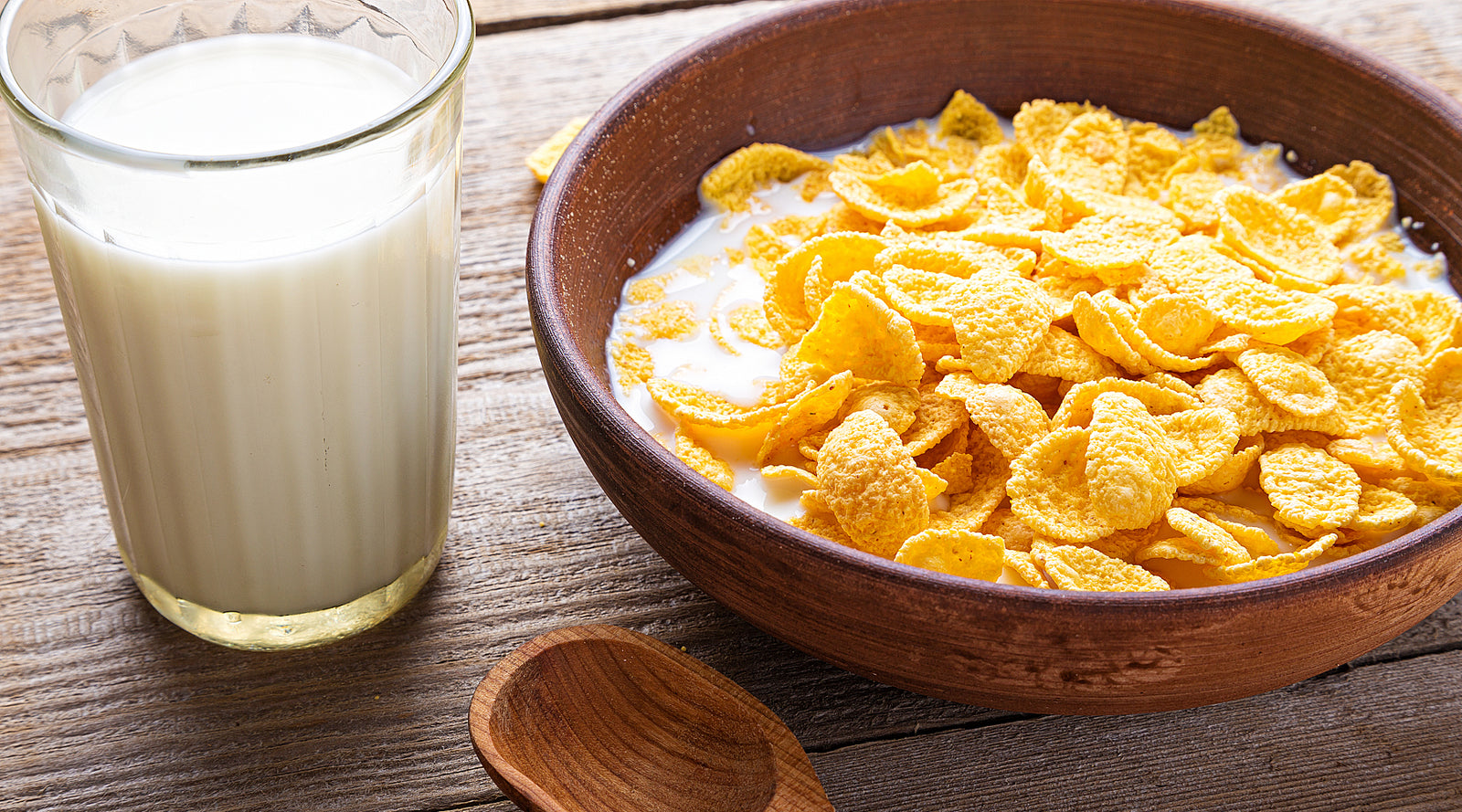The typical American diet is rich in processed foods, fried treats and sugary sodas. Even when you strive to eat healthy foods, you may be overconsuming foods that affect the level of inflammation in your body, according to the Cleveland Clinic. Inflammation is triggered by both healthy and unhealthy foods, and it is important to understand that inflammation is a natural and essential response in the body. The goal, though, is to maintain healthy levels of inflammation by eating nutrient-dense, anti-inflammatory whole foods while limiting processed foods.
Casein is the main protein found in milk and other dairy products. If you're allergic to casein and consume dairy products, your body mistakenly identifies casein as a threat to your body, causing your immune system to trigger an inflammatory response to fight it off. Another cause of inflammation? Lactose intolerance. Many experience difficulty digesting lactose (the sugar in milk) due to a large decrease in the enzyme lactase.
Dairy products to avoid include all forms of cow's milk, cheese, butter and yogurt. Dairy may hide in processed foods: baked goods, cereals, salad dressings, prepared soups and deli meats. According to Johns Hopkins Medicine, even products labeled "nondairy" can sometimes contain milk constituents like caseinate, a form of casein.
Food swaps: Opt for dairy-free milk beverages or "nice-cream," which is a blend of frozen fruit with coconut cream or a dairy-free milk alternative. Ghee is a great alternative to butter as the lactose is removed, and if you love cheese, enjoy a little occasionally or try a nut-based cheese as a tasty option.
Found in many grains, gluten is a protein that can trigger an inflammatory response. For some it is a food sensitivity, which can be tolerated in small amounts; for others, gluten causes an allergic reaction (Celiac) and has to be completely avoided. The Mayo Clinic lists wheat, rye and barley as the main sources of gluten but also notes that corn, quinoa and rice (all naturally gluten-free) may contain gluten due to cross-contamination. Gluten even hides in non-food products. The Celiac Disease Foundation notes that lip products, toothpaste, mouthwash, certain nutritional supplements and over-the-counter or prescription medications may also contain gluten. When avoiding gluten, read the labels of all beauty products, foods and drinks carefully.
Food swaps: Try amaranth, buckwheat, quinoa, wild rice, coconut flour and nut flours as substitutes for wheat and gluten-rich grains.

Processed lunch meats, bacon, sausage and hot dogs are mainstays in many American diets and are often at the top of the list of inflammatory foods to avoid. Processed meats include nitrates and other chemicals associated with chronic diseases. However, according to Harvard T.H. Chan School of Public Health's Dr. Frank Hu, eating processed meats once or twice a month is unlikely to cause physical harm.
Food swaps: Home prepared roasted chicken, turkey and beef are better options than what's available at the deli counter.
Sugars, including fructose, sucrose and others ending in "-ose," contain the inflammatory messenger cytokines. A study published in The American Journal of Clinical Nutrition found that eating too much sugar or consuming a high glycemic load may lead to unbalanced blood sugar levels.
Food swaps: You can enjoy a sweet treat and feel good about it. A serving of low glycemic fruit (berries are a great option and full of antioxidants) with a teaspoon of raw honey will do the trick. Or try one of our delicious wholefood bars.
The human body needs a balance of omega-3 and omega-6 fatty acids. Scientists have found possible links between a diet high in omega-6 and inflammation, according to an article in the journal PLEFA. Omega-6 fatty acids include polyunsaturated fat commonly found in walnuts, safflower oil, foods containing soy, cured meats and many processed foods.
Food swaps: Enjoy healthy omega-6 foods in moderation, replace processed foods with nutrient-dense fresh foods and add heart-healthy omega-3 from hemp hearts and fish to balance the omega-6 in your diet.
If you feel that your diet needs a reboot, a full-body detox, may help set the course for healing. Detoxing combines nutrients and herbs that support you through the physical phases of detoxification, including the safe elimination of toxins in your system.
